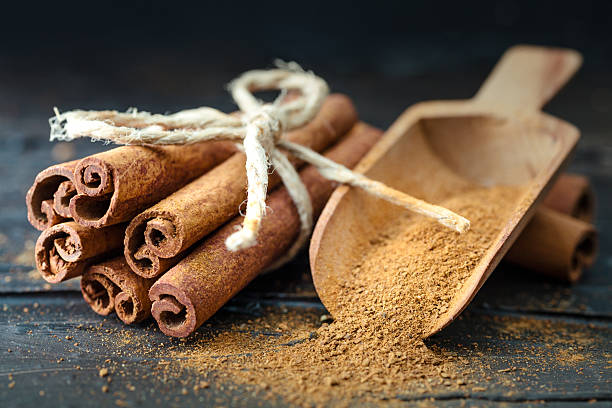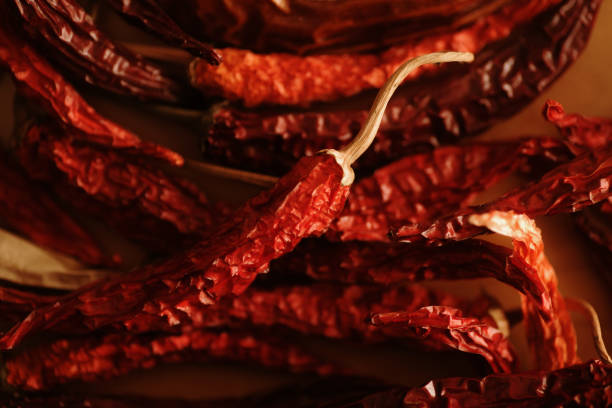What to Eat and Drink
Spice Up Your Heart Health
From reducing inflammation to improving cholesterol levels and supporting overall cardiovascular function, certain spices have been celebrated for their heart-healthy properties.
Spices aren’t just flavorful additions to our meals; many of them also offer impressive health benefits, particularly for heart health.
In this article, we’ll explore some of the top spices that are not only delicious but also promote heart health. Whether you’re seasoning your favorite dishes or experimenting with new recipes, incorporating these heart-healthy spices can be a flavorful way to support your cardiovascular well-being.
Spices have long been used to add flavor and depth to our dishes, but did you know that certain spices can also provide significant health benefits, particularly when it comes to heart health?
Incorporating heart-healthy spices into your diet can help support a healthier cardiovascular system and reduce the risk of heart disease. In this article, we will explore the top spices that are known for their exceptional properties in promoting heart health.
Key Heart-Healthy Spices and Their Benefits
Turmeric: The Golden Spice for Heart Health
Turmeric, also known as the “golden spice,” is recognized for its brilliant color and distinct flavor. However, the molecule curcumin contained in turmeric is responsible for the majority of its heart-healthy properties. Curcumin is a powerful antioxidant and anti-inflammatory chemical that can aid in the fight against inflammation, which is a major contributor to heart disease. Turmeric, which reduces inflammation, can enhance blood circulation and lower the risk of heart disease.
Curcumin has also been found in studies to help lower LDL (bad) cholesterol levels, contributing to a healthy heart. Furthermore, turmeric has been shown to have antiplatelet characteristics, which means it can help prevent blood clots from forming, lowering the risk of heart attacks and strokes.

Cinnamon: A Flavorful Spice with Heart-Protective Properties
Cinnamon is a delightful spice that adds warmth and sweetness to foods, but it also has heart-healthy benefits. Also Cinnamon has been demonstrated in studies to help lower blood pressure and cholesterol, both of which are major risk factors for heart disease.
Cinnamon includes chemicals that promote insulin sensitivity, which can help those with diabetes or insulin resistance. Cinnamon, which regulates blood sugar levels, can help reduce the risk of heart disease in persons with certain disorders.
Garlic: A Pungent Spice that Promotes Heart Health
Garlic is a versatile spice that is utilized in many different cuisines around the world. It not only enhances the flavor of dishes but also provides several health benefits, particularly to the cardiovascular system.
Garlic contains sulfur compounds such as allicin, which have been linked to a variety of heart-healthy qualities. Garlic has been demonstrated to lower blood pressure, lower LDL cholesterol levels, and prevent blood clots. These effects can help to maintain a healthy heart and lower the risk of heart disease.
Ginger: A Versatile Spice with Cardiovascular Benefits
Ginger is well-known for its digestive advantages, but it also has heart-healthy qualities. Also Ginger includes chemicals called gingerols, which have been shown to reduce blood clotting and cholesterol levels. Ginger can assist enhance cardiovascular health by reducing inflammation.
Ginger has also been found in studies to help lower blood pressure, making it useful for people who have hypertension. Incorporating ginger into your diet not only adds flavor to your foods, but it also promotes heart health.

Cayenne Pepper: A Spicy Spice that Boosts Heart Health
If you prefer spicy meals, cayenne pepper is a heart-healthy spice to include in your diet. Cayenne pepper contains capsaicin, a chemical that gives it its spiciness and has various health advantages.
Capsaicin has been shown to increase blood circulation by stimulating the enlargement of blood vessels. This can help lower blood pressure and relieve stress on the heart. Furthermore, capsaicin has been demonstrated to have anti-inflammatory properties, which can benefit heart health.
Incorporating Heart-Healthy Spices into Your Meals
Now that we’ve covered the great potential of these heart-healthy spices, let’s look at some practical methods to include them into your meals.
One simple method to reap the advantages of these spices is to sprinkle them over your food. For a rich color and earthy flavor, try adding turmeric to soups, stews, or roasted veggies. Cinnamon can be used to give cereal, smoothies, and baked goods a warm and cozy flavor. Garlic and ginger can be used to enhance the flavor and complexity of marinades, stir-fries, and salad dressings. If you enjoy spicy food, put cayenne pepper on your favorite meals for a hot kick.

Recipes Using Heart-Healthy Spices
To inspire you to incorporate these heart-healthy spices into your meals, here are a few delicious recipes:
- Golden Turmeric Smoothie: Blend together a frozen banana, a cup of almond milk, a teaspoon of turmeric, a pinch of black pepper, and a tablespoon of honey for a creamy and nutritious smoothie.
- Cinnamon Apple Overnight Oats: In a jar, combine rolled oats, almond milk, chopped apples, cinnamon, and a drizzle of maple syrup. Let it sit overnight in the fridge, and enjoy a delicious and healthy breakfast in the morning.
- Garlic and Ginger Glazed Salmon: Mix minced garlic, grated ginger, soy sauce, honey, and a squeeze of lemon juice. Brush the mixture onto salmon fillets and bake until cooked through. Serve with steamed vegetables for a heart-healthy and flavorful meal.
- Spicy Cayenne Chicken Stir-Fry: Sauté chicken breast with garlic, ginger, sliced bell peppers, and a sprinkle of cayenne pepper. Add soy sauce, honey, and a splash of lime juice for a zesty and spicy stir-fry.
Conclusion
Incorporating heart-healthy spices into your diet not only adds taste to your meals, but it also has major cardiovascular benefits. These spices, from turmeric’s anti-inflammatory characteristics to cinnamon and cayenne pepper’s blood pressure-lowering benefits, have the ability to promote heart health.
Experiment with these heart-healthy spices in your meals to discover the tasty options they provide. By embracing the flavors and advantages of these spices, you can boost your heart health and take a proactive approach to living a healthier lifestyle. So, get creative in the kitchen and reap the many benefits that these heart-healthy spices have to offer. Your taste buds and heart will thank you.
Trusted Health, Wellness, and Medical advice for your well-being



